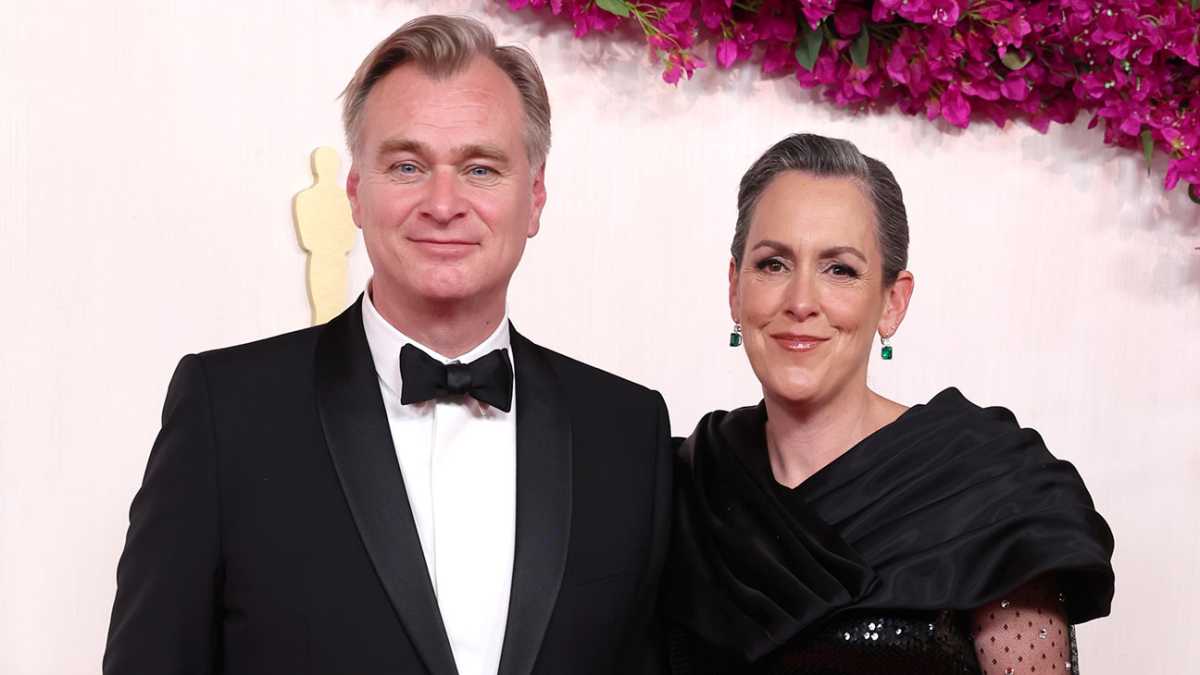Entertainment
Christopher Nolan and Emma Thomas Honored with Knighthood and Damehood for Services to Film

Renowned filmmaker Christopher Nolan and his wife, accomplished producer Emma Thomas, have been awarded a knighthood and a damehood respectively for their outstanding contributions to the film industry. The prestigious honors were granted by the UK government, acknowledging their remarkable services to film.
Nolan, who recently clinched his first Oscar for Best Director for the captivating movie “Oppenheimer,” garnered a total of seven awards at the 2024 Academy Awards ceremony, including the esteemed Best Picture accolade. The victory marked a significant milestone in Nolan’s illustrious career, which had previously seen him nominated for six Academy Awards without securing a win in the directing category.
The investiture of the knighthood and damehood will be formally conducted at Buckingham Palace, typically by the British monarch. Despite the current circumstances that prevent the monarch from undertaking royal duties, the honor will be conveyed in acknowledgment of Nolan and Thomas’s influential contributions to the film industry.
Christopher Nolan, born in 1970 in London, to a British father and an American mother, embarked on his cinematic journey at University College London, where he studied English and nurtured his passion for filmmaking. It was during his time at UCL that Nolan crossed paths with his future spouse, Emma Thomas, in 1997. Together, the couple founded Syncopy, their production company responsible for numerous blockbuster hits.
Throughout their prolific careers, Nolan, 53, and Thomas, 52, have collaborated on a myriad of successful projects, including the iconic Dark Knight trilogy, the mind-bending Inception, the interstellar odyssey Interstellar, the WWII epic Dunkirk, and the enigmatic Tenet. Their partnership has been synonymous with cinematic excellence and innovation.
In a nod to Emma Thomas’s invaluable role in their shared endeavors, Nolan warmly acknowledged her steadfast support in championing the importance of film as a medium. This recognition was evident when he was bestowed with the illustrious BFI Fellowship by the British Film Institute for his groundbreaking contributions to the industry.
Meanwhile, the release of “Oppenheimer” in Japan, where the historic tragedies of Hiroshima and Nagasaki unfolded, has stirred mixed reactions. While the film provides a poignant exploration of Oppenheimer’s internal conflicts rather than the direct depiction of the nuclear bombings, it has prompted debate and critique, particularly for the portrayal of the atomic bomb aftermath.
Additionally, the unconventional juxtaposition of child-friendly Barbie imagery with the intense themes of Oppenheimer has sparked controversy, leading to protests and online backlash. Notably, director Takashi Yamazaki has expressed his aspiration to create a cinematic response from Japan that delves into the narrative surrounding Oppenheimer.
As discussions around cinematic interpretations of historical events evolve, the cinematic landscape continues to witness dynamic dialogues and creative explorations, exemplified by the divergent perspectives presented in Nolan’s thought-provoking masterpiece and its reception on the global stage.












